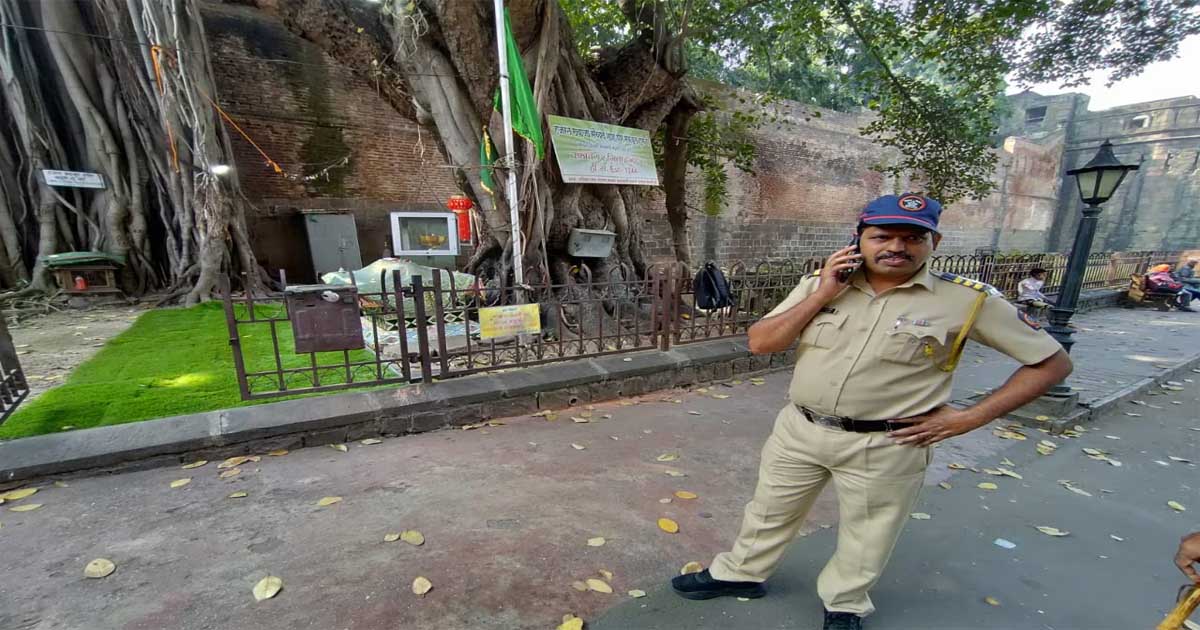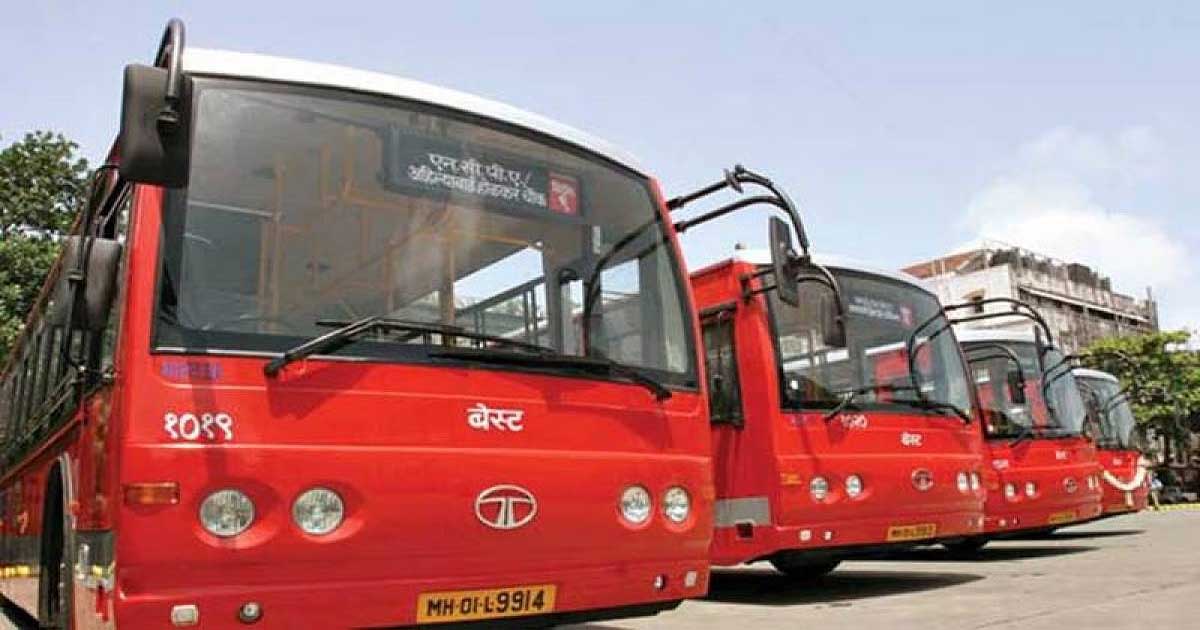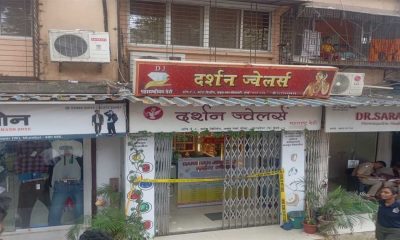Maharashtra
Maharashtra Government Form Committee To Explore Revenue Through Liquor, Cigarette Sales Amid Fund Issues

State governments, when drowning in debt, have no option but to tweak the excise policy on sin goods like cigarettes and liguor. Maharashtra may be no exception to the norm.
With its income sources already stretched thin, the cash-strapped Mahayuti government has decided to pop open a bottle of opportunity—appointing a five-member committee to explore liquor production and sales as a new revenue stream.
The committee, chaired by the additional secretary for the housing department, Appoints Committee to Study Liquor Policies for Revenue e Generation brings together a medley of bureaucrats: the additional chief secretaries from finance and state excise, the commissioner of state GST, and the member secretary, the state excise commissioner.
Together, they’ll be tasked with reviewing policies on liquor production, sales licenses, excise duties, and, crucially, revenue-maximizing practices adopted by other states, Expect a menu of recommendations on how to spice up state coffers. The committee’s. main course? A proposal already served up by the state excise commissioner, aimed at increasing annual income through liquor production and sales.
The plan? Crack down on illegal liquor sales and serve up more licenses for retail outlets. If this proposal is uncorked, it could boost the state’s revenue while also tidying up the department’ existing operations. ‘Why the sudden thirst for extra revenue, you ask? Blame the evergrowing list of populist promises made ahead of the state elections, which now need to be fulfilled. Take the Ladki Bahin scheme, for example—it demands a whopping Rs 46,000 crore annually.
Add to that loan waivers for farmers and covering electricity bills for agriculture pump sets, and you’ve got a recipe for fiscal trouble. To top it off, the state needs an extra Rs 600 crore to hike the Ladki Bahin disbursement from Rs 1,500 to Rs 2,100. Then there’s the debt. With loans soon expected to touch Rs 8 lakh crore, the state needs a sugar rush of revenue to keep things running smoothly. Aside from GST, Maharashtra relies heavily on VAT from petrol and diesel, stamp duties, vehicle taxes, and—of course—excise revenues. And so, the state is eyeing liquor sales as a cash cow.
But here’s the rub: the state’s current policy freezes the number of retail liquor licenses, a decision made back in 1974. With Maharashtra’s population growing and new urban areas cropping up, the demand for wine shops and country liquor outlets is higher than ever. The state excise department believes it’s high time to revisit this policy. Currently, there are 1,720 licenses for Indian Made Foreign Liquor (IMFL) and 4,346 for country liquor, not including those granted to restaurants with permit rooms. As population booms and urbanization spreads, the excise department is suggesting that the state loosen its grip on liquor licenses and let more outlets sprout up, bringing in fresh revenue while reducing the black market’s grip.
So, is the state taking the path of least resistance, or is it simply opening a new bottle of opportunity? Only time (and the committee’s recommendations) will tell—but it seems like Maharashtra is preparing to raise a glass to new ways of keeping the state’s finances in the black.
Maharashtra
Controversy over offering prayers at Hazrat Khwaja Shah Dargah in Pune Saniwar Wada… Hindu organizations protest, tense situation, peace maintained, police arrangements increased.

Mumbai: In the ancient historical fort of Saniwar Wada area of Pune, Muslim women offered Friday prayers in the premises of the shrine of Hazrat Khwaja Syed Shah (may Allah be pleased with him), after which the police have registered a case against the three prayers and started an investigation. A conspiracy has started to give this incident a religious color. BJP MP Medha Kulkarni took out a front here to straighten out the area and demanded that a case be registered. The police have registered a case against the three unidentified women under pressure from Hindu organizations, while the situation in Pune has become extremely tense after this incident.
The video of the three worshippers offering prayers went viral on social media at the time, on this basis the police have registered a case, while in Pune, Medha Kulkarni said that offering prayers in Saniwar Wada will not be tolerated. After offering prayers in Saniwar Wada, politics has also started on it by giving it a Hindu-Muslim color. After the video went viral, a Hindu organization named Patis Pawan filed a written complaint and the police have registered a complaint on the complaint of Ishwar Babban Kode. The accused have not been arrested yet. There is a fear that Hindu organizations will once again stage a protest in Saniwar Wada. After rejecting the protest, sectarians led by Medha Kulkarni raised slogans of Jai Shri Ram and hoisted saffron flags on the dargah’s lattice. Not only that, Siddhi Karan was performed outside the premises and Gautam Buddha was sprayed. The situation is peaceful, but tension remains. This dargah is under the influence of the Waqf Board and now Hindu organizations have also started demanding the removal of this shrine. The police have issued an alert after this incident and have increased the arrangements.
Maharashtra
“Mumbai Deepfake Fake Video Share Trading Fraud Interstate Gang Uncovered ; 4 arrested”

Mumbai: The Cyber Cell of Mumbai Crime Branch has claimed to have busted an inter-state gang that was trying to lure investors into investing in the share market by creating fake and deepfake videos of experts on a renowned business news channel. The complainant is a registered analyst with SEBI. On September 29, 2025, an attempt was made to lure investors into investing in the share market by using his fake deepfake video on social media. The complainant is a share trading expert and also works for various companies. An attempt was made to deceive him by creating a deepfake video on his Instagram. When the complainant got the information, he filed a complaint against him at the Cyber Police Station. When the investigation was started, his trace was found in another state. The accused were working as an inter-state gang. The accused were arrested from Bengaluru, Karnataka. The accused have been identified as Jijel Sebastian, 44, of Bengaluru, Dipane Tapan Banerjee, 40, of Karnataka, Daniel Arudha is 25 years old from Bengaluru, and Chandrashekhar is 42 years old. This interstate gang has created deepfake accounts on social media including Facebook to lure big companies into share trading and has cheated ordinary citizens and companies on deepfake social media accounts to prepare companies for fraud and has violated the terms and conditions of the share market company. This gang has created fake accounts several times. The accused have created a Facebook ID in the name of Wellelip India Services Private Limited and received 30 million Indian currency in Dubai currency from a Chinese citizen in the name of investment. In India and Mumbai, fraud is being committed in the name of share trading under the guise of deepfake and fake videos. Therefore, creating such fake videos on social media and committing fraud is a serious crime and action will be taken against it. This action has been taken by the Cyber Cell of Mumbai Crime Branch here on the instructions of Mumbai Police Commissioner Deven Bharti. DCP of Mumbai Cyber Crime Parshottam Karad said that this action has been taken in the case of cyber fraud and this interstate gang has created fake accounts on social media. Fraud was committed by creating an account, so there is a need to be alert during share trading. Cases of creating deep fake accounts of famous companies have come to light. Attempts to commit fraud are being made by creating fake accounts of famous companies on Instagram and Facebook. Therefore, verification is mandatory before share trading. Before share trading, one should invest in the share market only after consulting an authentic and experienced SEBI officer and expert. Do not trust social media and avoid investing on the basis of calls and SSMs on social media. This poses a risk of fraud. So far, the police have registered more than 600 cases of share trading, in which fraud of Rs 400 crore has been committed and in many cases, money has been recovered and frozen from the bank account. These accused also used to create deep fake videos with the help of AI.
Maharashtra
Mumbai: BEST Employees Receive ₹31,000 Diwali Bonus Credited Ahead Of Festival, Bringing Festive Cheer To 23,596 Staff

Mumbai: Bringing festive cheer ahead of Diwali, the Brihanmumbai Electric Supply and Transport (BEST) undertaking has announced an ‘ Bonus ‘of Rs 31,000 (Rupees Thirty-One Thousand Only) to each of its 23,596 officers and employees. The bonus amount was credited directly into their bank accounts on Friday, October 17, 2025 (Vasu Baras), much to the delight of the workforce.
This year’s ex-gratia amount marks an increase compared to last year, and has created a wave of happiness among the employees. The timely credit of the Diwali bonus ahead of the festival has given employees the financial boost to make festive purchases on the occasion of Dhanteras.
BEST Workers Union office-bearers met with the newly appointed General Manager of BEST, Dr. Sonia Sethi recently, at the BEST Bhavan in Colaba. During the meeting, discussions were held regarding long-standing demands of the employees, including the Diwali ex-gratia. Dr. Sethi assured the union representatives that BEST employees would receive a Diwali bonus on par with their counterparts in the Brihanmumbai Municipal Corporation (BMC).
-

 Crime3 years ago
Crime3 years agoClass 10 student jumps to death in Jaipur
-

 Maharashtra1 year ago
Maharashtra1 year agoMumbai Local Train Update: Central Railway’s New Timetable Comes Into Effect; Check Full List Of Revised Timings & Stations
-

 Maharashtra1 year ago
Maharashtra1 year agoMumbai To Go Toll-Free Tonight! Maharashtra Govt Announces Complete Toll Waiver For Light Motor Vehicles At All 5 Entry Points Of City
-

 Maharashtra1 year ago
Maharashtra1 year agoFalse photo of Imtiaz Jaleel’s rally, exposing the fooling conspiracy
-

 National News1 year ago
National News1 year agoMinistry of Railways rolls out Special Drive 4.0 with focus on digitisation, cleanliness, inclusiveness and grievance redressal
-

 Maharashtra11 months ago
Maharashtra11 months agoMaharashtra Elections 2024: Mumbai Metro & BEST Services Extended Till Midnight On Voting Day
-

 National News1 year ago
National News1 year agoJ&K: 4 Jawans Killed, 28 Injured After Bus Carrying BSF Personnel For Poll Duty Falls Into Gorge In Budgam; Terrifying Visuals Surface
-

 Crime1 year ago
Crime1 year agoBaba Siddique Murder: Mumbai Police Unable To Get Lawrence Bishnoi Custody Due To Home Ministry Order, Says Report






















